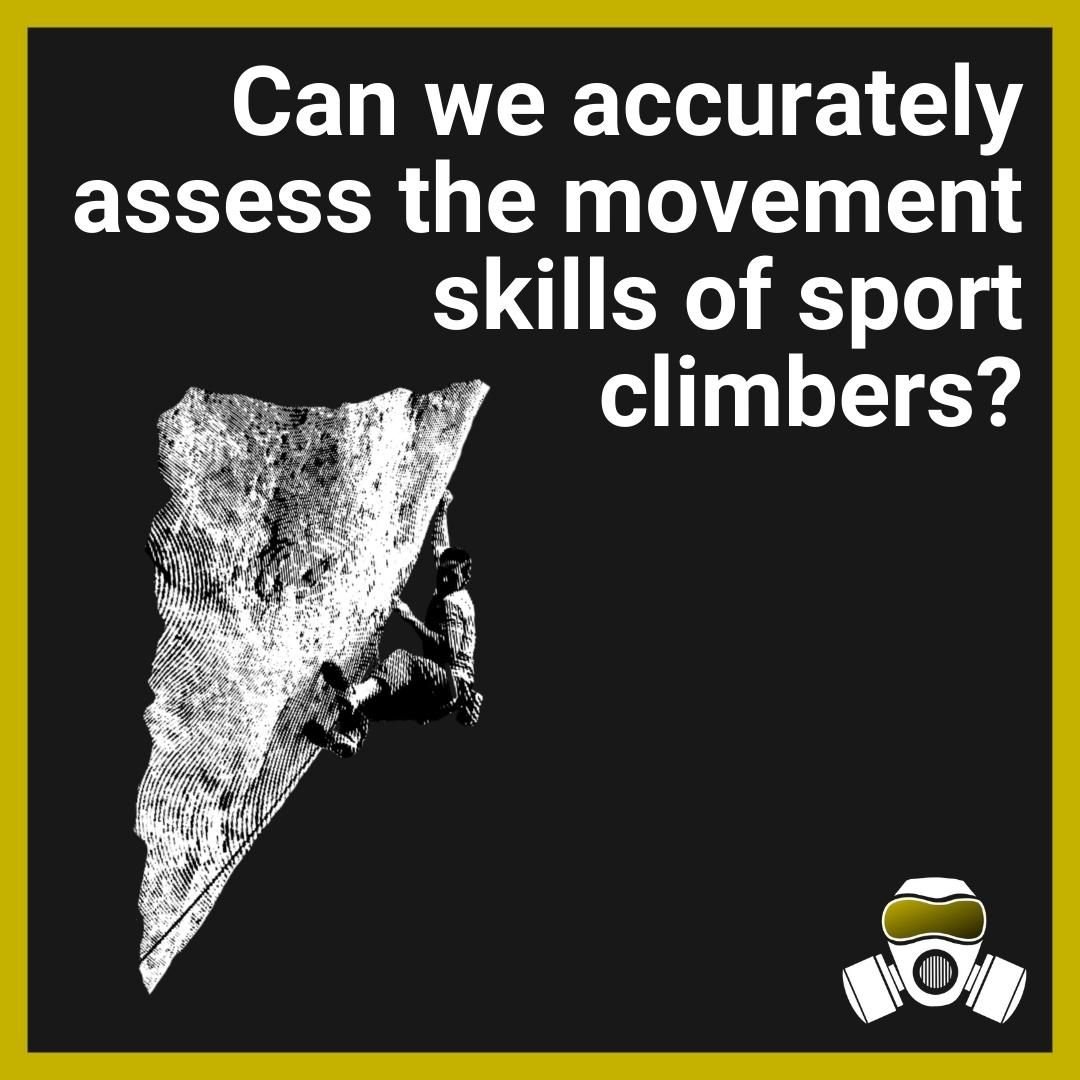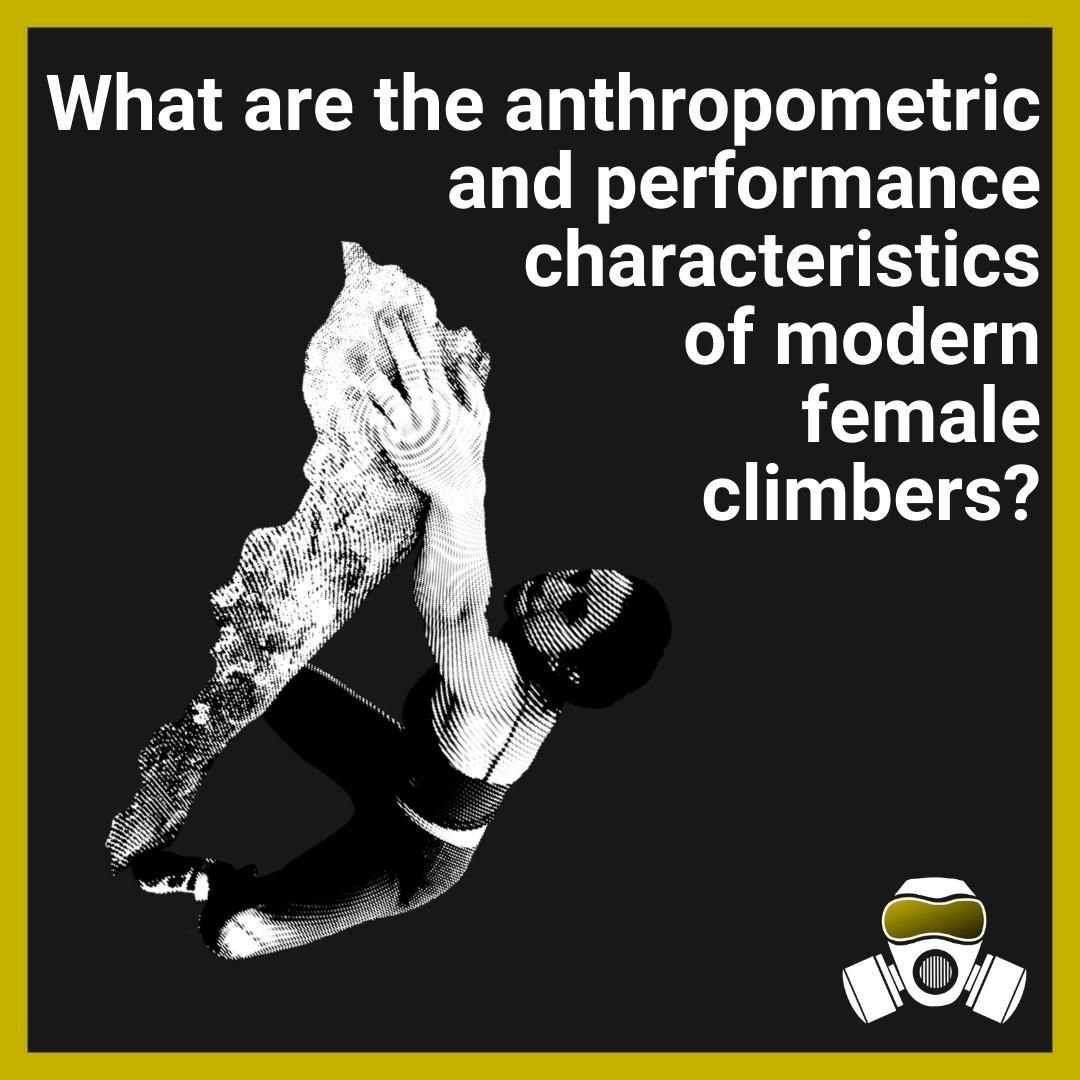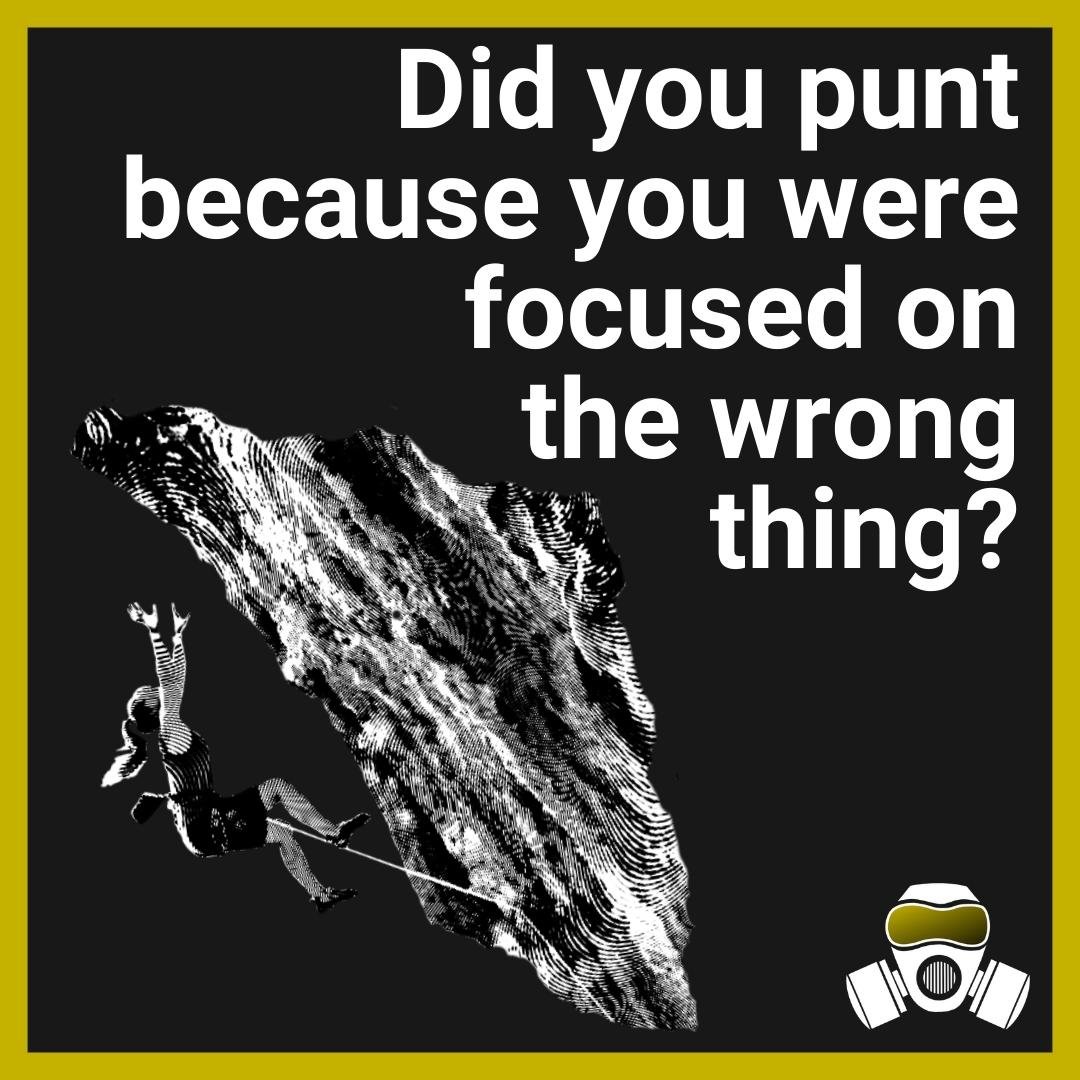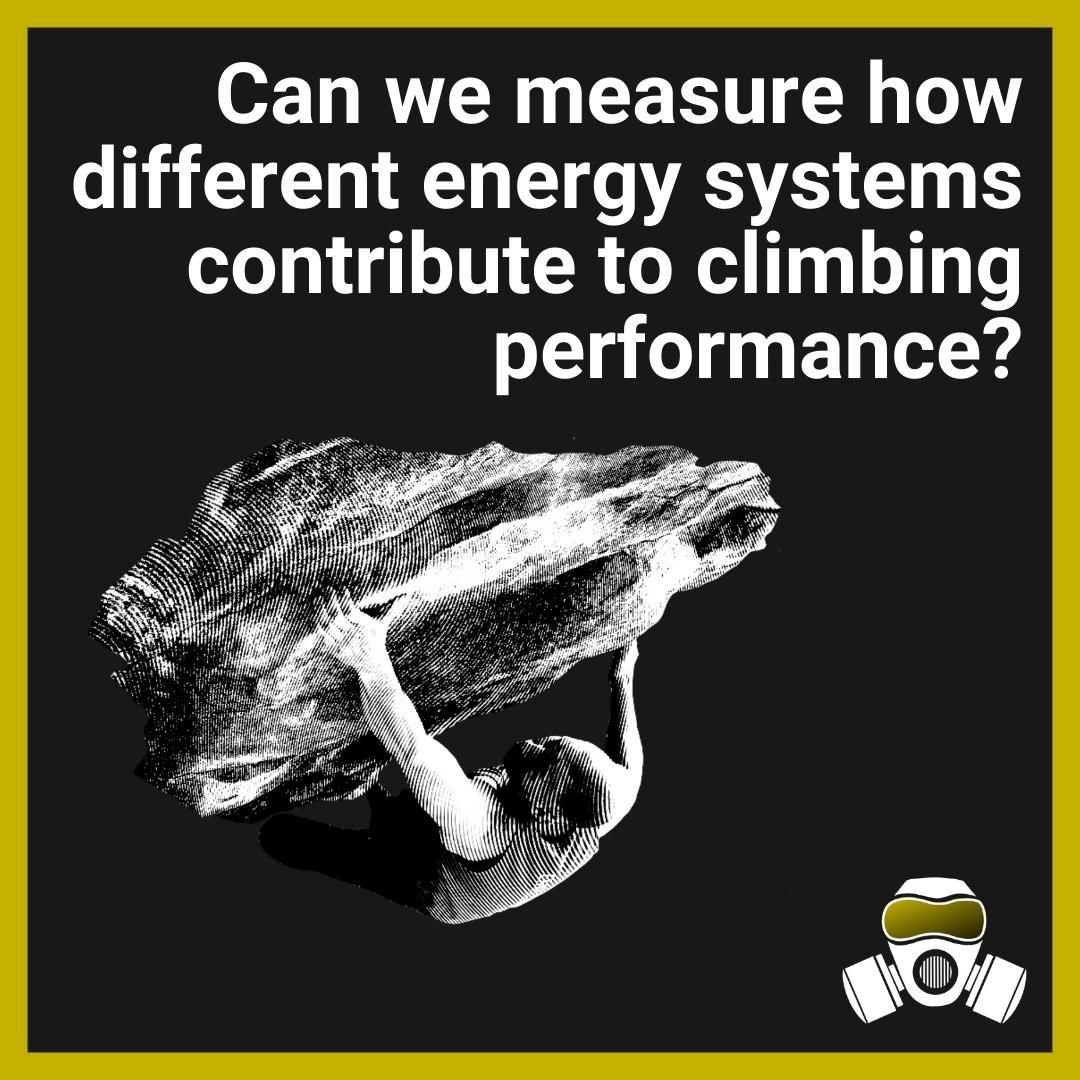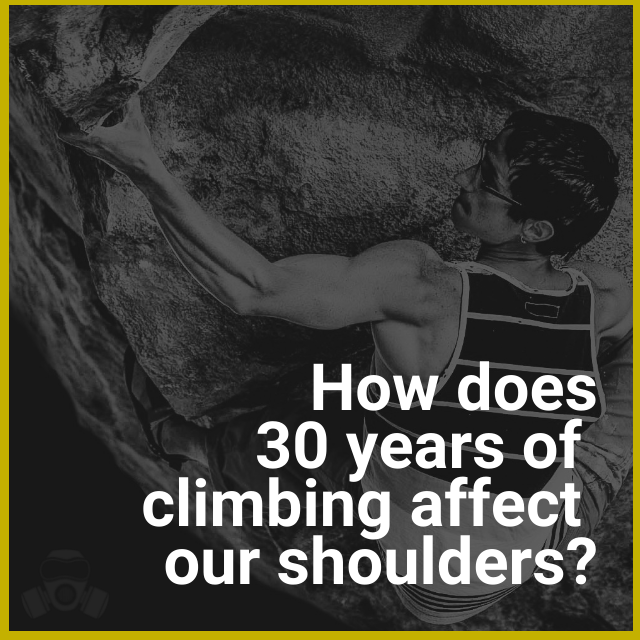Better Call Paul | The Male / Female Performance Gap in Climbing
From Kris:
For a few weeks after recording the last episode, where we discussed the position statement paper from the IRCRA, some of my comments didn't sit quite right with me. They weren't false, but they weren't the whole story. In this addendum episode, we look at a little more of the complete story by examining another paper.
Thanks to Irene Di Lauro for sending this paper in!
Female excellence in rock climbing likely has an evolutionary origin
By: Collin Carrol; published in Current Research in Physiology, 2021.
New episodes of Better Call Paul drop on Wednesdays. Make sure you’re subscribed, leave us a review, and share! And please tell all of your friends who are confused and overwhelmed by the amount of jumbled and conflicting training info out there, that you have the perfect podcast for them.
Got a question? Comments? Want to suggest a paper to be discussed? Get in touch and let us know!
Better Call Paul | Breaking Beta is brought to you by Power Company Climbing and Crux Conditioning, and is a proud member of the Plug Tone Audio Collective. Find full episode transcripts, citations, and more at our website.
FULL EPISODE TRANSCRIPT:
Breaking Bad Audio Clip 00:00
The moral of the story is I chose a half measure when I should have gone all the way. I'll never make that mistake again. No more half measures, Walter.
Kris Hampton 00:25
No more half measures, Paul. And, and I play that simply because I think I took a half measure in today's episode.
Paul Corsaro 00:35
Uh oh
Kris Hampton 00:36
This, what you're hearing now, is a bonus episode and addendum or a postscript, so to speak. If you haven't listened yet to today's Better Call Paul episode concerning the IRCRA position statement, go do that first. Let's just jump into this thing, Paul, and then I'll kind of explain to you where I'm coming from.
Paul Corsaro 01:00
Let's do it.
Breaking Bad Audio Clip 01:01
You clearly don't know who you're talking to, so let me clue you in.
Paul Corsaro 01:06
I'm Paul Corsaro.
Kris Hampton 01:07
I'm Kris Hampton.
Breaking Bad Audio Clip 01:08
Lucky two guys, but just guys, okay?
Paul Corsaro 01:12
And you're listening to Breaking Beta,
Kris Hampton 01:15
Where we explore and explain the science of climbing
Breaking Bad Audio Clip 01:18
With our skills, you'll earn more than you ever would on your own.
Breaking Bad Audio Clip 01:23
We've got work to do. Are you ready?
Paul Corsaro 01:27
I'm ready. You?
Kris Hampton 01:29
I am always ready to correct myself, or at least I think I am, haha.
Paul Corsaro 01:35
Haha
Kris Hampton 01:35
So that's what we're going to be doing here. After we recorded that episode, that you all have already listened to today, I remembered a paper that had been sent to us by listener Irene Di Lauro, who teaches climbing at a couple of gyms in Copenhagen. And Irene was excited that this was some research specifically based on female climbers. So first off, thanks Irene for sending this our way. You'll be happy to hear that we have lots more coming this season looking directly at female climbers.
Paul Corsaro 02:08
Oh yeah.
Kris Hampton 02:10
But something that I said, or some statements I made in this episode, didn't sit well with me for several weeks after recording. And that was just talking about the Flo-Jo's sprint record, and how that stacked up against high school boys' sprint records. And while what I said is true, it's not false, I think I did mischaracterize it a little bit. And this paper that we're going to be looking at today, that sort of changes the way I looked at it or I'm now looking at it, is called "Female Excellence In Rock Climbing Likely Has An Evolutionary Origin". Author is Collin Carroll. It was in the journal "Current Research And Physiology" in 2021. And honestly, the evolutionary theory aspect of this paper I think is really interesting, but it's not necessarily what I'm concerned about today. I suppose we should do a little explaining just to set up what I really want to discuss here. Did you get a chance to look at this paper after I sent it to you? I know I popped this episode on you like, "Hey, let's let's do this so I can put it out tomorrow!". Haha
Paul Corsaro 03:28
Yeah, I did. Yeah. So I like dug into it actually a little bit earlier today and gave it a good read. It pretty much looks at in different sports, there's a difference in like the highest levels of performance between male and female athletes. And this theory hypothesizes that if the gap is pretty small there, between the highest levels of performance, it basically means that's because these are traits that were evolutionarily selected for the survival of the human species.
Paul Corsaro 04:00
So if something was a little bit narrower, if that gap in performance between male and female is a little narrower, it means it's probably something us as a species had to develop overall, just to survive and escape those external pressures. Like they talk about sprinting a little bit in this because, as opposed to where the gap in endurance running maybe isn't as narrow, but a narrow sprinting gap shows that maybe this sprinting was an important trait to possess to get away from something that was trying to kill you.
Kris Hampton 04:00
Right.
Kris Hampton 04:27
Right
Paul Corsaro 04:27
And this paper just looked at rock climbing, along that same way, where they kind of use rock climbing as the athletic analogue of tree climbing. I had to kind of squint my brain a little bit to kind of make that connection
Kris Hampton 04:39
Haha
Paul Corsaro 04:40
But you can see what they're going with that, you know, a innate basic climbing ability was something we needed to survive A. as humans and even they talked about even before Homo sapiens became their own species even like precursor
Kris Hampton 04:53
Right
Paul Corsaro 04:53
I don't know if species is the right word. I'm gonna get yelled at by an anthropologist here, but up the line from Homo sapiens and what we are today.
Kris Hampton 05:00
Haha
Paul Corsaro 05:00
But pretty much this paper examined the gap. They looked at male and female climbers who have climbed 5.15 or higher and compared that to other sports to see if the performance gap for climbing was indeed a narrower gap than some other sports. And if so, if it was narrower, that gives us hints that climbing maybe is, maybe may have been important to our evolution as a species.
Kris Hampton 05:30
Right, right.
Paul Corsaro 05:32
Or we were all created 6000 years ago. Who knows? One of the two.
Kris Hampton 05:34
Hahaha. Something like that. And I think that's a really interesting take on it. And you know, the theory is really interesting, we could go into that. But the thing that really caught my attention about this paper and the that I recalled, and the reason I wanted to talk to you about it, is that my characterization of climbing as similar to sprinting in that the top women are nowhere near the top men might be not an entirely entirely fair comparison. This paper uses almost the same argument I used, but in sort of the opposite way. They look at Flo Jo's record in this paper, and say that it's it's .19 seconds slower than the 2000th fastest recorded time by a male, which is absurd to even think about. But not terribly surprising. What is surprising is that this gap, you know, the fastest female time being 2,000 places down from the fastest male times, is considered a small gap in the world of sports. And then when we look at climbing in from a similar perspective, that gap is much, much smaller, which I was actually really kind of surprised to learn. Makes sense once you think about it, but I was surprised to hear it.
Paul Corsaro 07:10
It was interesting too.... I remember looking when they brought up, like you said, the 2,000 competitors and so on and so forth. And you think, "But oh, yeah, you know, climbing is a much smaller sample size." I don't know if it's, I don't know if you can really make that comparison in good faith. But they did go on later on to explain, like they did think about what if we scaled this up to the size of running and how, what if we made these sample sizes comparable. And the result was still the same. That gap and climbing is still narrower if you compare it in the same way to the gap in sprinting.
Kris Hampton 07:41
Yeah, it was, it was kind of fascinating. The data they used in this was gathered in early 2020. And at that time, there were 90 climbers who had climbed 15a or harder and three of those were women. As of May this year, best I can figure anyway, that number has climbed to 115 climbers have done 15a or harder, and five of those are women. So you know, not a not a big change in the ratio. Seems like it's it's growing in a similar, you know, way that it exists when this paper was done. One of one of the things that was astounding to me, looking into this, is that there have been more than 500 ascents of 5.15 now.
Paul Corsaro 08:32
That's fucking crazy.
Kris Hampton 08:33
Hahaha. It's crazy. Yeah. And you know, if we if we looked at all of the ascents, rather than the athletes there.... while there are no women in the top 2,000 times for the 100 or the marathon, there are around eight female ascents in the top 500 ascents of all time, which is pretty drastically different. And I was making the comparison as if they were similar. That's a pretty big difference.
Paul Corsaro 09:05
Yeah.
Kris Hampton 09:09
Yeah, did you have any thoughts looking at this paper on what you would like to see from there? I was so surprised by this comparison and they have a chart in the paper that shows the like tiny...the size, the performance gap size between sprinting and climbing and climbing looks so much smaller when it's seen in relationship to that sprinting on the graph that I was really shocked by it. And that led me down this rabbit hole of thinking like I would love to see it done in all these other different ways. Like can we not just look at the elite climbers? Is it... could we go on 8a or theCrag or some of these websites that collect all this data and see what it looks like from 5.13 up, you know, or 14a and up and, you know, see if see if this holds true? And then I'd love to see it done with bouldering as well.
Kris Hampton 10:12
I started, you know, I considered bouldering and I went and went down a little rabbit hole there. And I think that there are only about um...50 people who have climbed V15/16 and above. But I'm pretty sure there are five women who've done V15. So, in bouldering, where I would expect it to be a wider gap, you know, strength and power more important.
Paul Corsaro 10:12
Yeah
Paul Corsaro 10:44
It's even smaller
Kris Hampton 10:44
It might be a smaller gap.
Paul Corsaro 10:47
Yeah, um, I think it'd be cool to see like this explored over a greater range of difficulty level. Um, I think they actually used a couple of good points in here as to why I think it might be tricky to do. So. You know, 5.15 and up, odds are there's a video, odds are it's a little more consensus, you know. I mean, here in Chattanooga, everyone argues over whether everything is 12d and 13a. You ask 8 people, you'll get 8 different answers.
Kris Hampton 11:12
Hahaha
Paul Corsaro 11:12
So I think it'd be tough finding, you know, an already subjective number, it'd be tough to find this objective metric to look at a huge population of people. You look at 8a, there's different grades for different routes, people have named the routes different. I think just from a, from a clerical standpoint, that'd be a nightmare.
Kris Hampton 11:32
Yeah, it's like comparing a qualitative to a quantitative thing. It's, it's really tough to bridge that gap.
Paul Corsaro 11:37
Yeah. It'd be cool to see, but I think just taking the absolute highest, the highest elite performance level is probably the way to look at it for the time being.
Kris Hampton 11:46
I am curious if you know, when we're comparing climbing to running, which is essentially what we're doing here, there's this aspect, we have to consider also where runners are all, all using the same field of play, you know. And particularly, since this is using outdoor climbs, we have to take into account that there are intermediate holds, there are new sequences, you know, footholds can change, which allows people of different sizes to be able to do the same sequences, to be able to do the same routes, or boulders or whatever and that's one of the, you know, really beautiful things about climbing. But it also makes it tough to, to, to gauge or tough to compare to something like running where, you know, men are going to have a longer stride length, something like that. So,
Kris Hampton 11:46
It makes sense.
Paul Corsaro 11:46
Yeah
Paul Corsaro 12:42
Right. You're not finding the micro beta for the 100 meter sprint. I think from just the very highest level, it's a cool comparison just to look at this gap and get whatever you may take out of it. But yeah, it's it's never going to be a one to one comparison for any sport with rock climbing, I think. I think it's tough to make a one to one comparison for any sport to any other sport really.
Kris Hampton 13:05
Yeah, same. Yeah, I did...I went and looked at some of this author's other research and he's looked at a lot of track and field events. And he found that jumping is actually a much wider gap than sprinting is. And I would, I would suspect bouldering would be that same thing, if that like one to one comparison held true. But I don't think it does, when I actually go and look at the bouldering numbers. I think though, that's a situation where we get to find these intermediates, or these other feet, or these other sequences, new ways to engage with the field of play, that allows a person of a different size, or even of a different strength, who can, you know, use one of their skills in a new way that the other person didn't think of allows them to ascend. And I think that's maybe more than the evolutionary theory that's proposed here, maybe that's more of why climbing has a much smaller performance gap. But I do think it's very cool that it does.
Paul Corsaro 14:16
Yeah, and I could maybe hypothesize why the bouldering gap, you know, at our very, our initial look at things is maybe even narrower is and I'd said it was tough to compare climbing to running but I'm about to do it again, right here.
Kris Hampton 14:30
Hahaha
Paul Corsaro 14:30
But um, but I always kind of consider you could consider bouldering a sprinting form of climbing, right?
Kris Hampton 14:38
Right.
Paul Corsaro 14:38
Yeah, a little bit less medium to longer energy system demand. So and they found in this paper that sprinting has an narrower performance gap than endurance running, so maybe we're just moving along the line to that spectrum to sprinting with bouldering
Kris Hampton 14:55
Yeah, that actually really did surprise me. You know, we know that historically women have performed better in endurance sports. So I was really surprised to see that this performance gap was smaller in sprinting, and I wonder if that's, if that has something to do with the fact that, you know, we're reaching the human limits. We're getting closer and closer to the fastest that a human can run whereas we haven't yet applied the fastest a human can run to a marathon length distance. Something similar, you know, if we're, if we're using climbing as the analog here, that bouldering we're getting close to the hardest individual moves that people can do.
Paul Corsaro 15:46
Yeah.
Kris Hampton 15:47
I don't think we're there yet, but we're certainly closing in on it. But we haven't yet translated that to really hard sport climbs. You know, partially because it's difficult to find and, and partially, you know, just because we don't yet have the ability to do V16 moves over and over and over and over and over. Maybe someday someone will.
Paul Corsaro 16:12
Yeah
Kris Hampton 16:13
A lot of interesting things to look at in this paper, I think.
Paul Corsaro 16:16
It was, yeah, it was a cool, cool paper that was put together and made you think a little bit.
Kris Hampton 16:22
Yeah, totally. So you know, thanks, Irene, for sending this over. When I first looked at it, I wasn't sure if it was gonna fit into the season and then I realized just the other day that it works perfectly with these jackass comments that I was making.
Paul Corsaro 16:38
Haha. You just subconsciously wanted to include the paper, so you had to make that comment, right?
Kris Hampton 16:42
Yeah. Question for you. Based on this, knowing that the performance gap between men and women is much smaller in climbing, how do you feel now about the IRCRA position designating "elite", "advanced", etc, being different for men versus women?
Paul Corsaro 17:07
Hmmm.........I don't know how I feel. That's a good question. So
Kris Hampton 17:13
Like they mention in the paper that this is how it's done in other sports, so this is how we're doing it. But here, we see that the performance gap isn't nearly as big. So maybe if it's split up, it's not split up nearly as drastically as it actually is in their designation.
Paul Corsaro 17:33
Yeah, I think this paper would be a good starting argument for why there doesn't need to be a gender split there.
Kris Hampton 17:39
Yeah, yeah. Yeah, I think it's I think it's super interesting. Especially now that like Janja is getting out there and working on La Dura Dura and, you know, some of the hardest sport climbs that we have, I think it's only a matter of time before before we see women closing that performance gap even more.
Paul Corsaro 17:58
That's gonna be cool to see.
Breaking Bad Audio Clip 18:00
She's like the ant, man. She can lift 100 times her own weight. For real.
Kris Hampton 18:04
All right, anything else from you on this paper?
Paul Corsaro 18:07
Now, thanks for sending that in. This is a this is a good little change of pace from some of the other strength and conditioning/physiology/movement control. It was cool to look at climbing through a slightly different lens. So always appreciate when papers get sent in.
Kris Hampton 18:21
Yeah, totally. Assuming that you all already listened to Better Call Paul for today, you already know where to find us. But we did tell you another lie in that episode. After recording that episode, I was able to find the paper with the IRCRA test battery, so we will indeed be back next week before we dive all the way into this next season of Breaking Beta a few weeks from now to discuss those measurements and whether or not the tests they chose helped us see the key performance characteristics required for climbing performance.
Kris Hampton 18:54
See y'all then
Breaking Bad Audio Clip 18:56
It's done.
Breaking Bad Audio Clip 18:57
You keep saying that and it's bullshit every time. Always. You know what? I'm done.
Breaking Bad Audio Clip 19:04
Okay, you and I we are done.
Kris Hampton 19:09
Breaking Beta is brought to you by Power Company Climbing, and Crux Conditioning and is a proud member of the Plug Tone Audio Collective. For transcripts, citations and more, visit powercompanyclimbing.com/breakingbeta.
Breaking Bad Audio Clip 19:22
Let's not get lost in the who, what and whens. The point is we did our due diligence.
Kris Hampton 19:28
Our music, including our theme song Tumbleweed, is from legendary South Dakota band Riff Lord.
Breaking Bad Audio Clip 19:34
This is it. This is how it ends.





